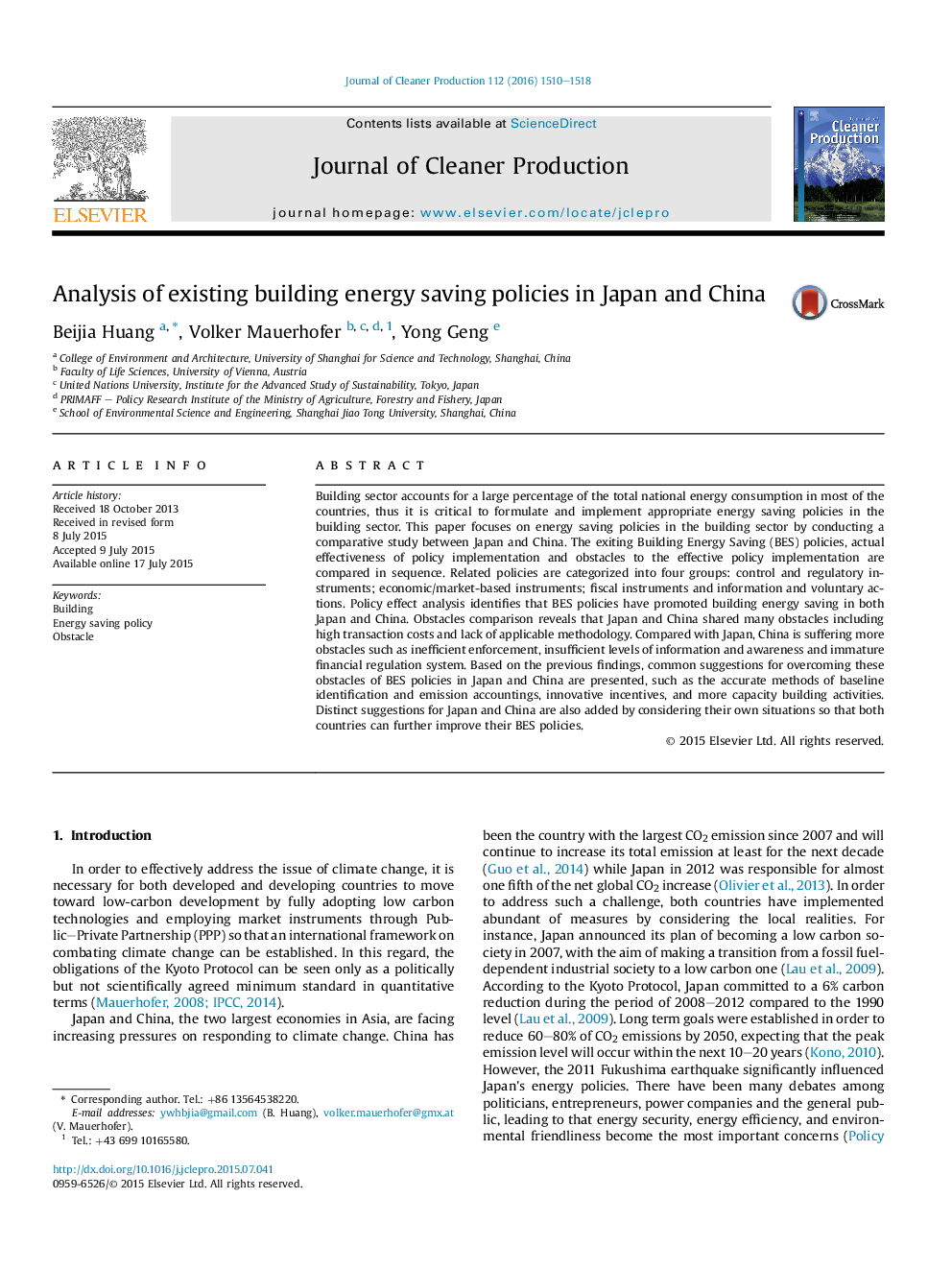| Article ID | Journal | Published Year | Pages | File Type |
|---|---|---|---|---|
| 1744323 | Journal of Cleaner Production | 2016 | 9 Pages |
Building sector accounts for a large percentage of the total national energy consumption in most of the countries, thus it is critical to formulate and implement appropriate energy saving policies in the building sector. This paper focuses on energy saving policies in the building sector by conducting a comparative study between Japan and China. The exiting Building Energy Saving (BES) policies, actual effectiveness of policy implementation and obstacles to the effective policy implementation are compared in sequence. Related policies are categorized into four groups: control and regulatory instruments; economic/market-based instruments; fiscal instruments and information and voluntary actions. Policy effect analysis identifies that BES policies have promoted building energy saving in both Japan and China. Obstacles comparison reveals that Japan and China shared many obstacles including high transaction costs and lack of applicable methodology. Compared with Japan, China is suffering more obstacles such as inefficient enforcement, insufficient levels of information and awareness and immature financial regulation system. Based on the previous findings, common suggestions for overcoming these obstacles of BES policies in Japan and China are presented, such as the accurate methods of baseline identification and emission accountings, innovative incentives, and more capacity building activities. Distinct suggestions for Japan and China are also added by considering their own situations so that both countries can further improve their BES policies.
